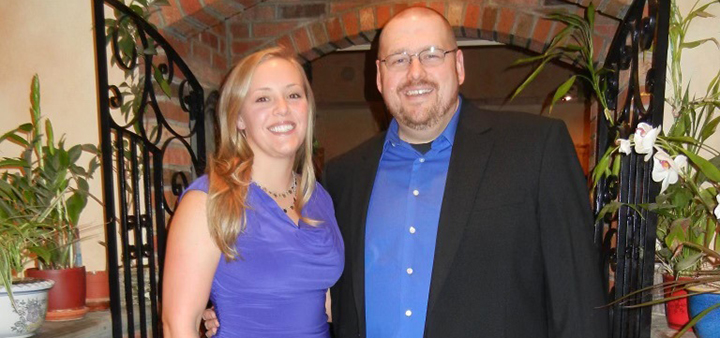Tilting At Windmills: Another Modest Proposal – Encore
Published:
January 20th, 2023
By:
Shelly Reuben

In 1729, forty-seven years before the Founding Fathers signed the Declaration of Independence, Jonathan Swift – the same Swift who penned Gulliver’s Travels – wrote a satirical essay called “A Modest Proposal.”
Swift’s target was Ireland’s terrible poverty, coupled with a population explosion of female beggars always being “followed by three, four, or six children, all in rags and importuning every passenger for an alms.”
His “proposal” was that mothers of these children should invest two shillings to feed each child during the first year of its life, and then sell it to a gentleman for ten shillings, because one “good fat child” would provide “most delicious, nourishing, and wholesome food, whether stewed, roasted, baked, or boiled.”
In consequence, the mother would “have eight shillings net profit, and be fit for work till she produces another child,” thus alleviating her poverty and providing her with a better life.
Of course, Swift was being facetious. I, however, am dead (no pun intended) serious about my far more modest proposal.
It concerns cemeteries.
I admit that for many years, amorphous thoughts along these lines had been floating around in my head, but I pushed them aside whenever I visited this or that cemetery, my priorities at the time being to shed tears, place flowers, pay respects, and say goodbye. Not to reconstitute the structural design of cemeteries. Per se.
Loss does that to us: focuses our attention on heartache. We do not think about the forty-five minutes it takes to drive along unmarked, unpaved, circuitous lanes that, more often than not, lead us right back to where we started. We do not think about walking up and down row upon row of GONE BUT NOT FORGOTTEN headstones for people named Whipple, Jefferson, Ptazynsky, Sanchez, Goldfarb, McKinnon, and Wong.
Nor, in the middle of our grief, do we note that Babington, who died in 1932, is two feet away from Zanzibar, who expired in 2017; or that Argyle, deceased in 1956, lies shoulder-to-shoulder with Hammerstein, who died in 1832.
Why? Because we are too numb and too polite to realize that cemeteries are not designed for the convenience of the living, but for the amusement of the spiritual descendants of the Marquis de Sade.
I was not cognizant of this fact when I visited the graves of those whom I, personally, had loved and lost.
Oh, no. To have complained then about the impossibly of finding a headstone in under three hours would have seemed trivial and self-serving.
This changed, however, when friends asked me to drive them to the Oak Manor Memorial Park on Staten Island. They had been there several times before, but it still took them over two hours to find their son’s grave. It was while I was observing their consternation that I determined something must be done. I also realized then that the problem could be solved only if drastic measures were taken.
Measures that would improve the emotional ties to our lost loved ones, decrease frustration, and add years to our lives. And it isn’t even complicated. New cemeteries would only have to implement two basic rules:
One: Sell plots in whatever size the purchaser wants (single plot, double plot, family plot, or mausoleum) and at whatever price the market will bear.
Two: Demand that the people who are eventually going to occupy those plots (mother, father, spouse, child, self) agree to die in alphabetical order.
If these simple guidelines are followed, locating Grandpa Adams’s grave – in the “A” section of the cemetery, after Abdulla and before Ardsley – would be spellbindingly (pun intended) easy.
Of course, enforcing these new regulations will require determination on the part of the sellers and self-discipline on the part of the buyers. For example, if Uncle Simon Millard has terminal leprosy, but cousin Charlotte Bitters only has a bad case of psoriasis, Miss Bitters would still be obliged to die before Mr. Millard, because every plot in the “B” section of the cemetery would have to be filled before moving on to sections “C” through “L.”
Making exceptions would be unthinkable. Allow just one “C” die before all of the “A”s and “B”s, and havoc would ensue.
Despite the obvious merits of this proposal, my friend Amanda, whose last name begins with the letter “V,” alerted me to an additional benefit I had not initially noticed. She refers to it as “The Revenge of the ‘Z’s.”
When I asked what this meant, Amanda explained: “If your name begins with an ‘R’ or a ‘T’ or a ‘Z,’ you are always called last. You sit at the back of the class and the teacher never sees your raised hand; you are at the end of the line in the cafeteria; you take tests on the last day of every term; and you get last pick of a seat when you board a commercial jet.
“But with your system of reorganizing cemeteries,” Amanda snorted triumphantly, “we finally luck out. Everybody goes before us, and we get to die last!”
Although Amada’s jocular response might have been deemed inappropriate, there is no doubt that the implementation of my plan would, coincidentally, allow certain alphabetical injustices to be redressed.
Yet, no plan is perfect.
An occasional Charlotte, Elizabeth, or Fanny will see the sun set too soon over her horizon. And more than one Zack will experience too many rotations on its axis of the earth. But for the sake of orderliness, peace of mind, and ease in locating a loved one’s grave, sacrifices must be made.
Before I end this narrative, and in the interests of full disclosure, I feel compelled to reveal that my last name begins with the letter “R.” Its location toward the end of the alphabet, however, has in no way influenced my belief in the essential fairness and efficiency of this proposal.
A proposal which, contrary to that of my predecessor, Jonathan Swift, does not require that a single “good fat child” be slaughtered, fried, or fricasseed.
Copyright © Shelly Reuben, 2023. Shelly Reuben’s books have been nominated for Edgar, Prometheus, and Falcon awards. For more about her writing, visit www.shellyreuben.com
Author: Shelly Reuben - More From This Author
Comments




